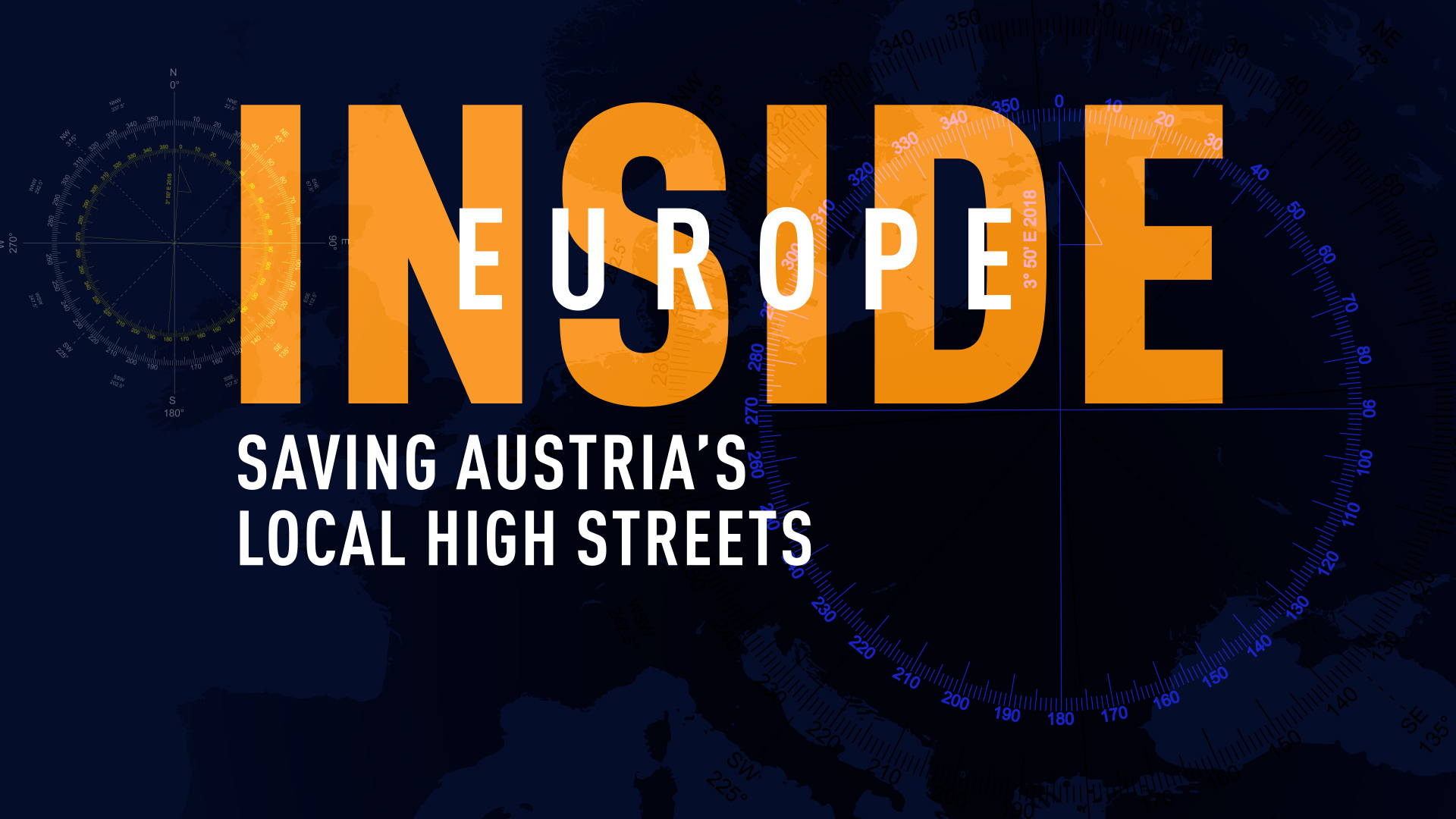03:55

The 'death of the high street' is a problem across many countries, as businesses in town centers dry up in favor of larger out of town shopping malls. To reverse this trend, the Eastern Austrian town of Eisenstadt turned to marketing manager Margit Sommer who may have come up with the right recipe to keep the high street alive.
"If you want to reduce vacant spaces, then our so-called downtown bonus is certainly a good measure," Sommer told CGTN. "We financially support new businesses in the first three years after they open a store."

Now the small town close to Hungary's border is bustling especially during market days. /MediaWorks/CGTN
Now the small town close to Hungary's border is bustling especially during market days. /MediaWorks/CGTN
In 2016, the town of just 15,000 inhabitants counted 18 vacant shops. With new business incentives, the number has now been cut by two thirds to just six.
One of the recipients of the incentive is a local goldsmith. Katharina Podpera's business, which is unique in the area, benefits from $1,000 per month in the first year of trading, and she will receive half that amount in the second and third year.
Podpera is quite thankful for the generous money. "I wouldn't have dared to take a leap and just open a business without any help," the 56-year-old goldsmith says.
However, revitalizing the old town comes at a price. All in all, Eisenstadt estimates that the measures have cost around $1 million. Besides the downtown bonus, the city's program includes planting more trees in the pedestrian area and organizing street markets or other regular events which take place every other day.

Eisenstadt's marketing manager Margit Sommer says the street market helped revitalizing her town./MediaWorks/CGTN
Eisenstadt's marketing manager Margit Sommer says the street market helped revitalizing her town./MediaWorks/CGTN
"I grew up in a restaurant business myself, right here in this street," Sommer said while taking us for a tour through the weekly farmers' market. "That's why I care about revitalizing the downtown area. And when you see how everyone is getting involved and things are really changing, that just makes the job fun."
Most of the residents we asked seem to share her impression that the town center has become more lively since the measures were put in place.
"I like it better here in the historic center than in a big shopping mall where everything is so suffocating," market stand owner Phillip Schweighofer says.

While Eisenstadt's old town has been revitalized, new shopping malls are being built on the outskirts of the town./MediaWorks/CGTN
While Eisenstadt's old town has been revitalized, new shopping malls are being built on the outskirts of the town./MediaWorks/CGTN
However, there are still reasons to make purchases in out-of-town shopping malls, says Damaris Hirtler-Schekulin: "If I have to do some quick shopping, I prefer to do it outside because it's just easier to find parking spaces."
As traffic increased in the 1980s, stores began to move to the outskirts of Austrian towns, where they built large parking lots. Today, the country has Europe's fastest rate of land consumption - 13 hectares are being built on every day.
At the same time, many town centers died out and continue to do so. Although, word of Eisenstadt's success has spread, with others in Austria now adopting similar measures as they fight against the 'death of high street.'